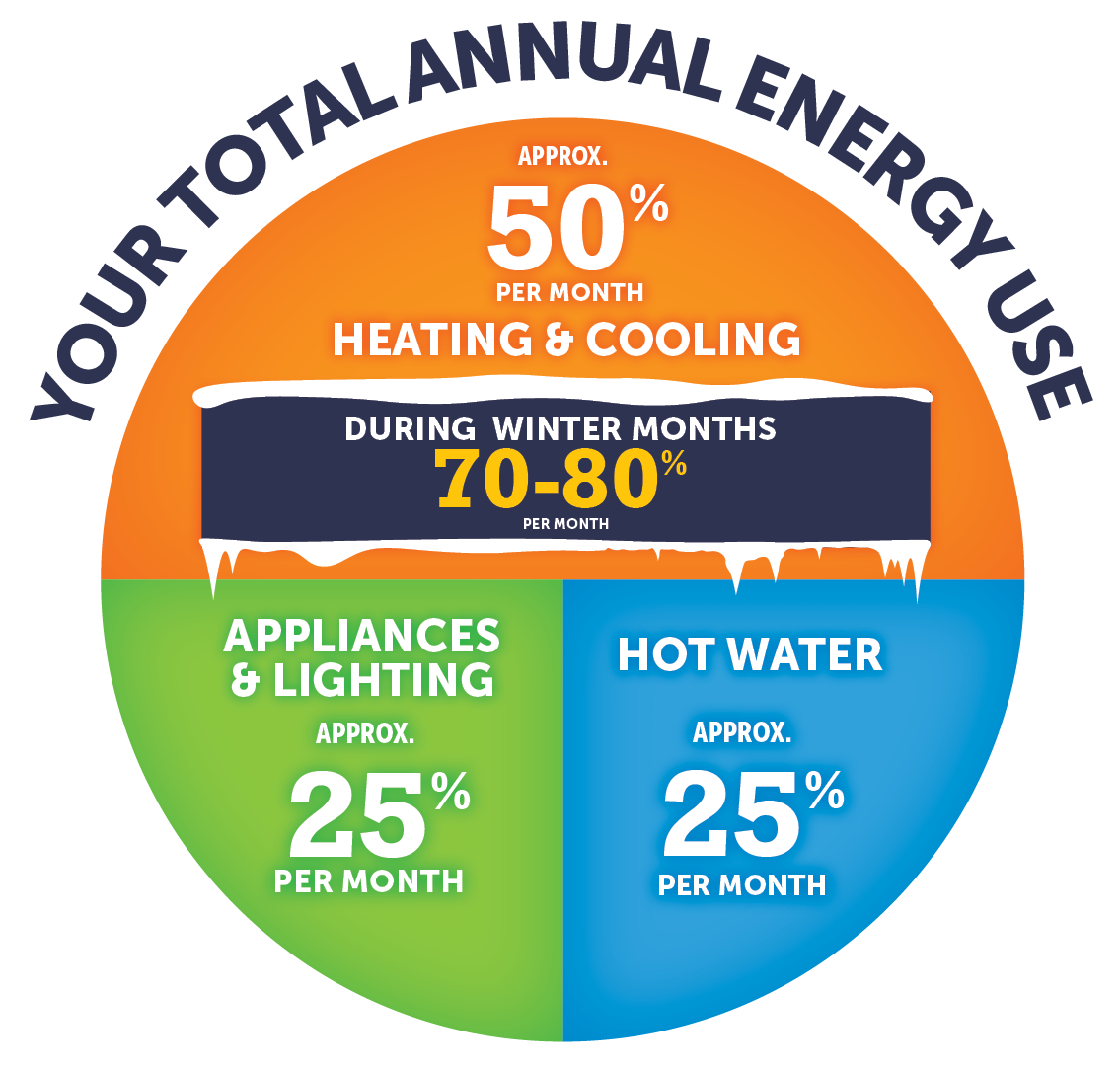Why energy bills rise in winter
When the temperature drops outside, your home’s energy use goes up—and in New Brunswick, it can get very cold.
- Heating is the biggest driver of energy use and costs. In the coldest months, heating alone can make up 70 to 80% of your electricity bill. In milder months, it can account for about half.
- Every home is different. Insulation, windows, the efficiency of your heating system, and equipment maintenance all affect how much energy your home uses.
- Your home still uses energy when you are away. Essentials like refrigerators, freezers, water heaters, and other electronic equipment continue to use electricity, whether you are home or not.
— IT'S NOT JUST USAGE —
As of April 1, 2025, NB Power electricity rates for residential customers increased by 9.7%. This means if your household used the same amount of electricity as last year, your bill would still be 9.7% higher.
This increase was necessary to cover the rising costs of operating and maintaining the power system—from fuel and equipment to the investments required to modernize the grid and keep it reliable and ready for the future.
Annual Energy Usage Breakdown

- It varies by household, but typically heating and cooling can make up approximately 50% of your total annual energy use. During the winter, that percentage can be much higher for heating.
- Water heating accounts for about 25% annually
- Appliances and lighting accounts for about 25% annually
Using additional appliances like a space heater, dehumidifier, pool heater, or adding a second fridge can also impact consumption.
How Temperature Impacts Energy Consumption
Because heating is such a large part of electricity use in most New Brunswick homes, cold weather makes your energy use go up more than anything else. When the weather gets even a little colder, your heating must run longer to keep your house warm and comfortable. This helps explain why energy use can go up, even if your routine hasn’t changed or you haven’t touched your thermostat.
Heating Degree Days
Understanding heating degree days can help explain why one bill may be higher than another. A heating degree day shows how often the temperature was below 18°C—the point where most homes start using heat. More heating degree days = more energy use.
Heating degree days are tracked by weather services like Environment and Climate Change Canada and can be found online.
DID YOU KNOW?
Even if you don’t adjust your thermostat, as it gets colder outside, your home requires more heat to maintain the temperature—and that shows up on your bill.
DID YOU KNOW?
Smart meter users can track energy use alongside outdoor temperatures in their NB Power online account









